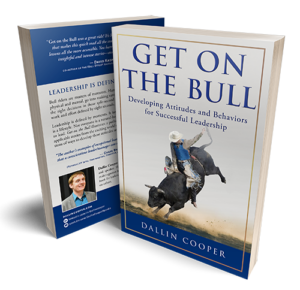by Dallin Cooper
90% of CEOs said that the fear of failure keeps them up at night more than any other concern[1]. That is a staggering amount of emotional distress, and to make matters worse, it’s all spent on something that is bound to happen eventually. Of course, it depends on how exactly you define failure, but we’re all going to make mistakes. It’s human nature. It’s part of life.
But there’s a silver lining. I would argue that failure is more than just unavoidable, it’s crucial to ethical leadership.
One aspect of a leader’s job is to help their team learn, grow, and be successful. They do that in a lot of ways, but primarily by modeling the behaviors which lead to success. Our actions speak much louder than our words. For example, if you tell your team that family comes first and they should be comfortable taking time off, yet you never take time off for anything ever, they likely won’t feel comfortable taking time off either. And any leader worth their salt knows that the single worst thing your team can do is hide mistakes. Mistakes are opportunities for them to learn and grow, but you can’t help them with that if you don’t know about the mistakes in the first place.
Get this though: they won’t be comfortable sharing their mistakes if you don’t share yours. So you don’t just have to make mistakes; you also have to let people see your mistakes, and perhaps most importantly, you have to let them see you fix them.
When I was writing Get On The Bull, mistakes and failure were major themes of the book. After all, professional bull riders – some of the best in the entire world – only stay on the bull 30% of the time. That’s a lot of failure! But this research into failure led me to a concerning conclusion: the internet has massively amplified the fear of failure, particularly the fear of looking like a hypocrite.
People make mistakes; however, people also change, grow, and transform. But the internet saves everything. Forever. And as we see over and over with the all-encompassing “cancel culture,” the internet provides a whole new opportunity to fail in spectacular and frightening ways.
I’m an ethics guy. I’m a vocal advocate for honesty and transparency. But across my 15 years of internet usage, there are likely multiple examples of me being dishonest or saying unethical things. And if there aren’t now, eventually there probably will be. I could very easily be labeled an inauthentic hypocrite for it. We’ve all seen this phenomenon affect celebrities, businesses, and politicians.
Now whether they deserve the backlash or not isn’t the subject of this article. Anybody who takes the time to advocate for anything good will eventually fall short of the perfect standard they’re pursuing. For example, a CEO who champions inclusivity will at some point make an unintentionally insensitive remark. But if we punish that person for failing to be perfect, all we do is discourage people from striving to be better. Instead, people will settle into safe mediocrity, because it’s easier than risking the wrath that’s provoked by reaching for something greater, but not quite getting there.
I want to put that fear to rest. I can’t control the whole world. I can’t control the anonymous internet. But part of being an ethical and effective leader is intentionally choosing to pursue lofty goals and a higher sense of morality, even though the pursuit inevitably means failing.
Falling short of your own professed ideals isn’t hypocrisy, it’s humanity. Make the effort even though you’ll fail. Let your team see the effort, let them see the failure, and let them see you get up, make it right, and keep going. It will make you a better person, it will make them better people, and it will make the world a better place.
________________________________________

Dallin Cooper has owned and operated businesses of all sizes for nearly a decade. Teaching the same principles of ethical leadership that led to the success of his own businesses, Dallin is the speaker for any business group, association or organization looking to develop a culture of trust. Ethics generally gets a reputation of being a boring and stuffy topic. Dallin strives to subvert that reputation by crafting speeches and trainings that don’t feel like “ethics training.” Instead, audiences will learn about how their actions impact their relationships with others as well as themselves in such a way that they yearn to behave more ethically not because of compliance, but because of the benefit that behavior brings to their lives. Dallin is the author of Get on the Bull: Developing Attitudes and Behaviors for Successful Leadership.





